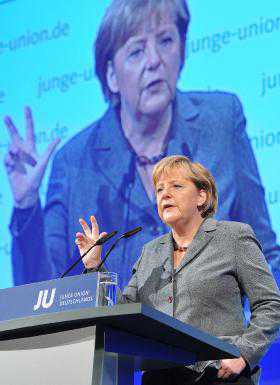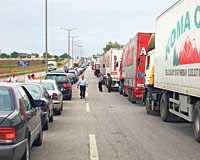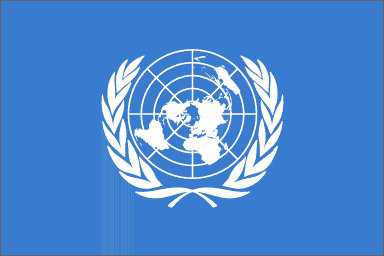BERLIN – Daily News with wires
Sunday, October 17, 2010
 Germany’s attempts to create a multi-cultural society in which people from various cultural backgrounds live together peacefully have failed, Chancellor Angela Merkel said, fueling a recent debate on immigrants in the country.
Germany’s attempts to create a multi-cultural society in which people from various cultural backgrounds live together peacefully have failed, Chancellor Angela Merkel said, fueling a recent debate on immigrants in the country.
“Multikulti,” the concept that “we are now living side by side and are happy about it,” does not work, Merkel told a meeting of the conservative Christian Democratic Union, or CDU, party’s youth faction in Potsdam near Berlin. “This approach has failed, totally,” Agence France-Presse quoted her as saying.
Merkel spoke a week after talks with Turkish Prime Minister Recep Tayyip Erdoğan in which they pledged to do more to improve the often-poor integration record of Germany’s 2.5-million-strong Turkish community.
Horst Seehofer, the leader of the CDU’s Bavarian sister party, CSU, also said Friday that the two parties were “committed to a dominant German culture and opposed to a multicultural one. “‘Multikulti’ is dead,” he said.
While warning against “immigration that weighs down on our social system,” Merkel said Germany needed skilled labor from overseas to keep the pace of its economic development.
Immigrants should not only be supported but also challenged, the chancellor said, adding that immigrants living in Germany needed to do more to integrate, including learning to speak German. This demand has been neglected in the past, online magazine Focus quoted her as saying.
At the same time, however, she supported German President Christian Wulff’s statement saying that Islam is now a part of Germany with the example of a German citizen of Turkish origin football player. “You can tell [Islam is a part of Germany], not only by the example of football player Özil,” she said, referring to the country’s a 4 million Muslims.
According to the head of the German chamber of commerce and industry, Hans Heinrich Driftmann, Germany is in urgent need of about 400,000 engineers and qualified workers.
“The lack is causing a loss of growth of about 1 percent,” he said in an interview.
Jewish leaders in Germany meanwhile warned that German society and democracy were under threat from extremists.
Curbing Muslim practices
A recent expert study should prompt the government to act against anti-democratic ideas, the secretary general of the Central Council of Jews in Germany, Stephan Kramer, told the Rheinpfalz am Sonntag weekly.
The study, by the Friedrich Ebert Foundation think tank, showed that more than one-third, or 34.3 percent, of those surveyed believed Germany’s 16 million immigrants or people with foreign origins came to the country for the social benefits.
Around the same number, 35.6 percent, think Germany is being “over-run by foreigners” and more than one in 10 called for a “Fuehrer” to run the country “with a strong hand.”
Thirty-two percent of people said they agreed with the statement: “Foreigners should be sent home when jobs are scarce.”
Far-right attitudes are found not only at the extremes of German society, but “to a worrying degree at the center of society,” the report noted.
More than half, 58.4 percent, of the 2,411 people polled thought the around 4 million Muslims in Germany should have their religious practices “significantly curbed.”
The integration of Muslims has been a hot button issue since August when a former member of Germany’s central bank sparked outrage by saying the country was being made “more stupid” by poorly educated and unproductive Muslim migrants with headscarves.
The banker, Thilo Sarrazin, has since resigned but his book on the subject – “Germany Does Itself In” – has flown off the shelves, and polls showed considerable sympathy for some of his views. Kramer also criticized CSU leader Seehofer for ideas that he said were “not only petty but outright irresponsible” and slammed the current immigration debate as “hysterical.”





